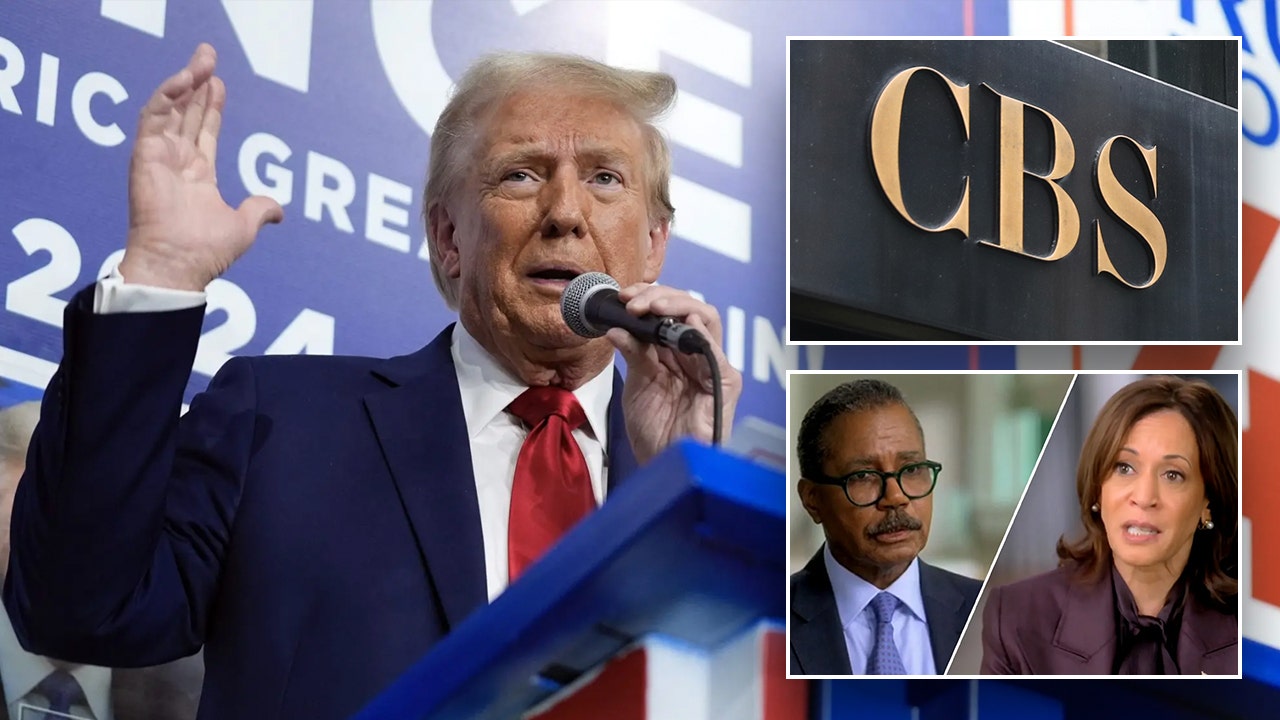Trump’s Legal Battle Broadens: CBS and Paramount Drawn into Controversy
In a dramatic escalation of his ongoing legal challenges, former President Donald Trump has widened his lawsuit against CBS, now naming Paramount as a co-defendant. This notable development follows the release of a contentious transcript from the CBS program ’60 Minutes,’ which Trump claims misrepresented his statements and intentions. As the legal saga unfolds, this case raises critical questions about media accountability, press freedom, and the implications of litigation against major media corporations.
The Background of the Lawsuit
Trump’s initial lawsuit against CBS was sparked by an interview segment aired on ’60 Minutes’ that he and his legal team allege contained misleading edits and omissions. The former president argues that the network’s portrayal of his comments distorted the truth and harmed his reputation. This lawsuit primarily focuses on the principle of defamation, a complex area of law that balances the right to free speech with the need to protect individuals from false statements that could damage their reputation.
As the controversy deepened, Trump’s legal team decided to bring Paramount into the mix, claiming that as the parent company of CBS, it shares responsibility for the actions of its subsidiary. This move not only broadens the scope of the legal battle but also introduces additional complexities, as Paramount’s extensive media portfolio includes a wide range of properties that reach millions of viewers.
Media Accountability and Press Freedom
The inclusion of Paramount in Trump’s lawsuit propels the conversation around media accountability into the spotlight. Media organizations have a profound responsibility to provide accurate and fair reporting, particularly when covering high-profile figures like Trump. Critics of the lawsuit argue that it represents an assault on press freedom, suggesting that the former president is attempting to intimidate the media into altering its reporting standards.
On the other hand, proponents of Trump’s stance argue that media outlets should be held accountable for their reporting, especially when it leads to misinformation. This case could set a precedent for how defamation cases involving public figures are handled in the future, potentially influencing not just news coverage of Trump but also how media outlets approach reporting on all public figures.
The Implications for Future Media Relations
The ramifications of this lawsuit extend beyond Trump and CBS/Paramount; they could reshape the landscape of media relations in the United States. There are several potential outcomes that could arise from this legal battle:
- Increased Caution Among Media Outlets: If Trump wins the case, media organizations may adopt a more cautious approach in their reporting, particularly when it comes to editing interviews and handling quotes.
- Heightened Legal Scrutiny: Other public figures may feel empowered to pursue similar legal actions against media companies, leading to an increase in defamation lawsuits.
- Public Perception of the Media: The case could further polarize public opinion about the media, with supporters of Trump viewing the legal action as a necessary check on media power, while critics may see it as a threat to journalistic independence.
Analyzing the Legal Landscape
Trump’s legal strategies are not new; he has a history of using lawsuits as a tool to challenge media narratives. However, the legal landscape surrounding defamation is intricate, particularly for public figures. Under U.S. law, to win a defamation case, a public figure must prove that the statement in question was made with ‘actual malice,’ meaning the publisher knew the information was false or acted with reckless disregard for the truth.
This high standard can be difficult to meet, and many legal experts believe that Trump’s case might face significant hurdles. Historically, courts have been reluctant to impose liability on media organizations for statements made about public figures, as such rulings could infringe on First Amendment rights.
The Role of Public Opinion
Public opinion plays a crucial role in shaping the narrative surrounding Trump’s lawsuit. Many supporters view his actions as a defense of his character and reputation, while critics perceive it as an attack on media freedom and an attempt to silence dissenting voices. This division reflects broader societal attitudes towards Trump, the media, and the concept of accountability.
Polling data indicates that Americans are deeply divided on issues related to media trust and accountability. Some surveys show that a significant portion of the population believes the media is biased against Trump, while others argue that the media plays a vital role in holding public figures accountable. This polarization complicates the discourse surrounding the lawsuit and suggests that the outcome will resonate beyond the courtroom.
What Lies Ahead
As the legal battle unfolds, both CBS and Paramount will likely mount vigorous defenses against the lawsuit. They may argue that the editing choices made for the ’60 Minutes’ segment were within the bounds of journalistic practice and that the segment was a legitimate exercise of their First Amendment rights. Conversely, Trump’s legal team will seek to emphasize the impact of the alleged misrepresentations on his reputation and credibility.
In conclusion, Trump’s legal battle against CBS and now Paramount highlights significant issues surrounding media accountability and press freedom. As the lawsuit progresses, it will undoubtedly capture the attention of legal scholars, media professionals, and the public alike. The outcome could influence how media outlets report on public figures in the future and may redefine the boundaries of journalistic practice in a rapidly changing media landscape. Regardless of the outcome, this case underscores the delicate balance between free expression and accountability that lies at the heart of American democracy.
See more BBC Express News

